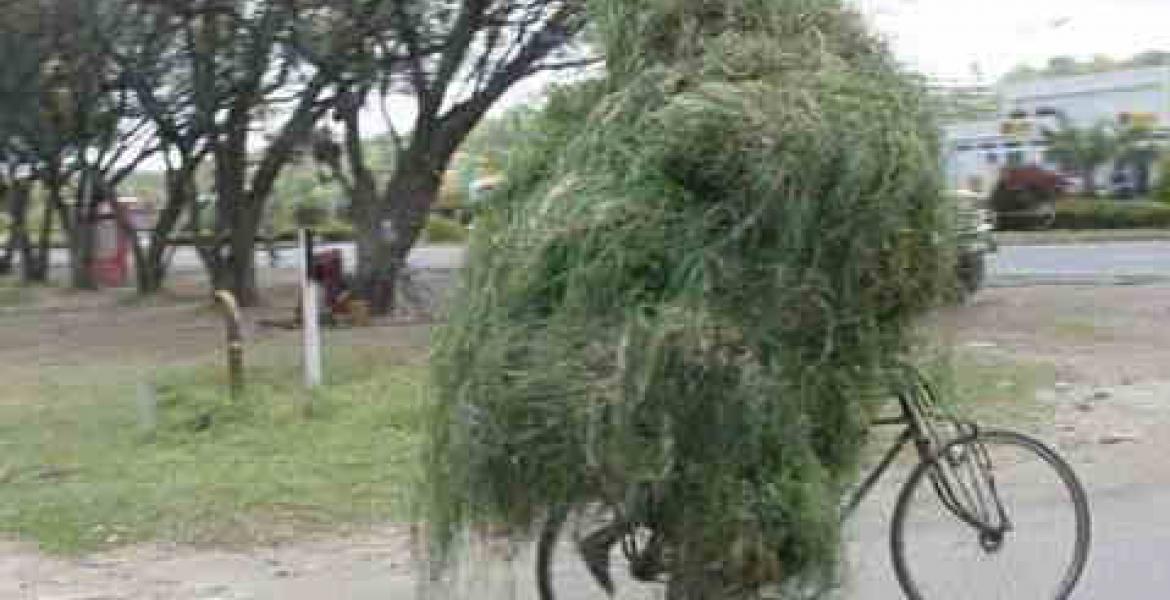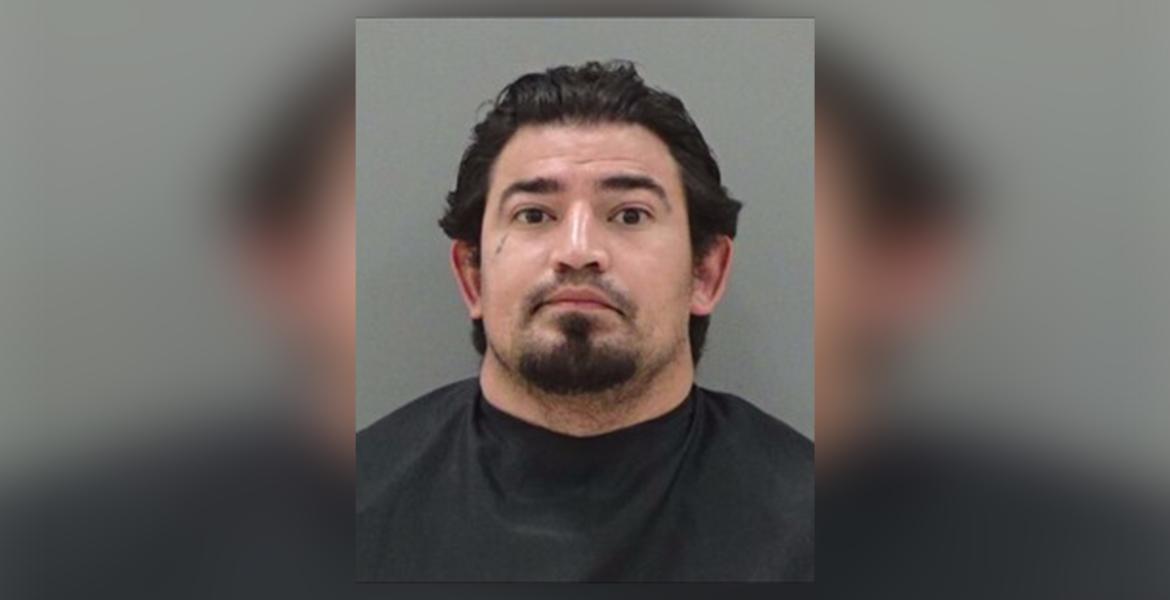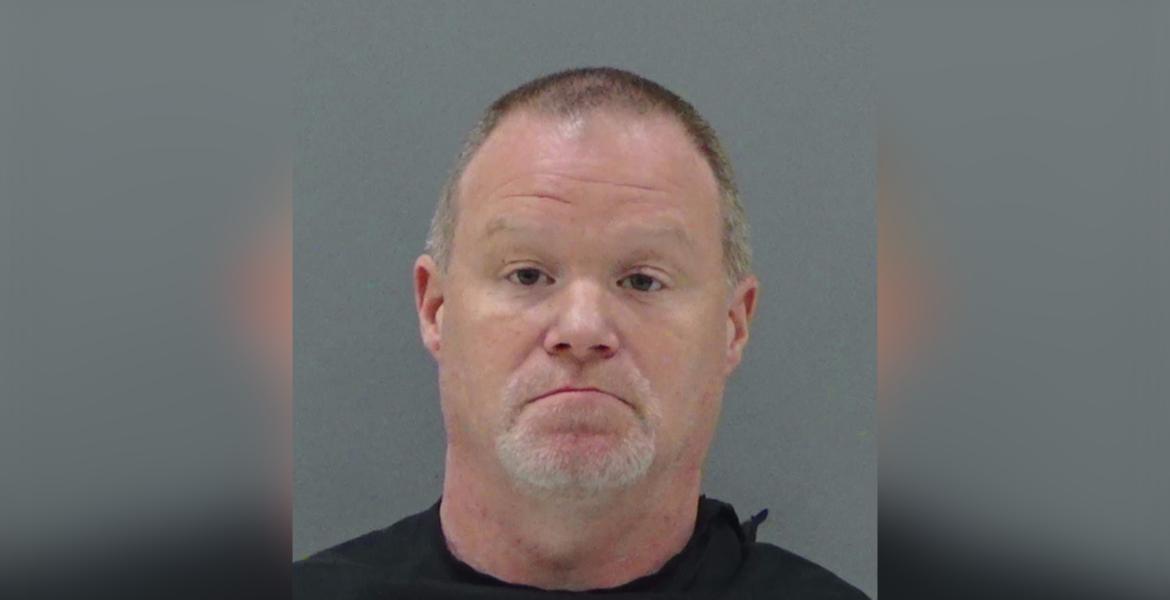LUBBOCK, TX — Tim Vasquez took the stand in his own defense Wednesday (March 23) morning during the trial where the former chief of the San Angelo Police Department faces charges of one count of Receipt of a Bribe by an Agent of an Organization Receiving Federal Funds and three counts of Honest Services Mail Fraud. The allegations stem from a 13-year off-time business relationship Vasquez had with the City of San Angelo’s public safety radio vendor since 2007. The prosecution argued that that vendor, San Antonio-based Dailey and Wells, bribed Vasquez over the years by overpaying Vasquez for his band’s gigs for the company parties. In return, Vasquez was an advocate for Dailey and Wells products that were purchased by the City of San Angelo. Vasquez served as the San Angelo police chief from 2004 until he was defeated in July 2016 by current Chief of Police Frank Carter.
Vasquez claimed on the stand that the City of San Angelo saved around $3 million by purchasing the latest Dailey and Wells Harris P25 Phase II public safety radio system by forgoing the standard Requests for Proposals process. Former City of San Angelo purchasing director Roger Banks testified Tuesday that the radios were purchased through a “Buy Book,” a co-op of pre-bid products and services managed by the Houston-Galveston Area Council.
‘When the City bought the Harris radios in 2007, it was a little over $6 million. In the span of the timeframe since then until 2015, and with inflation, we estimated a new Harris system would cost $9 million,” Vasquez said.
The total cost was $5.7 million, according to court testimony.
Vasquez seemed sincerely humbled and meek as he explained on the stand that he didn’t know about the form he would have to fill out at the City attorney’s office that would have disclosed his off-the-clock business relationship with Dailey and Wells. He said his professional career as a lawman started in the dispatch office when he was 19.
“Back then, they taught every dispatcher about what was in the Blue Book, or the Standard Operating Procedures for the San Angelo Police Department,” Vasquez said. He added that he was not familiar with the City employees’ manual or the City purchasing manual.
Vasquez broke down on the stand. Crying, he said, “Knowing now what I know now, I wish that I filled out that form. If I was still in that position I would still be filling out that paperwork.”
Vasquez was referring to a disclosure form that City of San Angelo employees can fill out at the City attorney’s office detailing outside business interests that could be a conflict of interest. Vasquez also noted that he had no training on the Texas Local Government Code or any City of San Angelo procedural manual where disclosures of conflicts of interests are laid out.
On cross examination, U.S. Attorney Jeffry Haag hammered Vasquez on that. “You were the chief of police!,” Haag said, meaning because of Vasquez’s position as the top lawmen in the city, he above all others needed to know and follow the law.
Vasquez’s conflict of interest stems from Dailey and Wells hiring Vasquez’s band over a period of 13 years. According to the prosecution, since 2007, Daily and Wells paid Vasquez $178,382.51 for performances of his band Funky Munky. The defense hasn’t disputed this amount but has instead stressed to the value of a Funky Munky performance, especially at a private party.
Vasquez admitted he was in a temporary financial bind in 2015 when Ranger Nick Hanna disclosed on the stand that the chief of police was forced to take out an online pay-day loan for $3,000 at over 30 percent interest. Vasquez said that in addition to having to pay the Texas Police Chiefs Association the proceeds for the golf tournament, his girlfriend and mistress had obligated Vasquez to about $3,600 in obligations under the name of his band. Vasquez’s voice trembled as he recalled how he had treated his now ex-wife through his extramarital affair.
It was Hanna’s investigation of the charity golf tournament funds that revealed to the Texas Ranger the former chief’s financial dealings with Dailey and Wells.
The final payment from Dailey and Wells was one-time and for $50,000 made in late 2016. The accompanying contract Vasquez signed is where he agreed to perform 10 nights of performances for the radio company in San Antonio. Vasquez said it took three years to fulfill. All of the performances were for two nights except the Christmas party performances, he said.
The prosecution pitched a theory that the final $50,000 deal was “hush money” paid to Vasquez after Vasquez told Dailey and Wells he was under investigation, as Vasquez had learned in a short text exchange with Ranger Hanna.
On the stand, however, Vasquez was adamant, “We were a real band with real fees.”
Vasquez testified,”I didn’t try to hide my association but should have broadcasted it immediately.” On the Funky Munky Facebook page, as presented by the prosecution and defense, there are posts bragging about the Dailey and Wells gigs at an exclusive San Antonio country club. Vasquez said he assumed those around him knew he was playing gigs for Dailey and Wells.
“My life has always been like that. I had my cop hat, I had my ‘Head Munky’ hat,” he testified.
Vasquez said the recommendations he made to the City were true and correct. “If the system was not working I would have not recommended that system to the city,” he said. Later, he added, “Dailey and Wells system never had downtime. It worked exactly the way we needed it to. I know contention about interoperability but we still have the ability to communicate,” Vasquez said.
On the stand, Vasquez detailed more Dailey and Wells perks. He said he was a guest in the Dailey and Wells suite at at least four San Antonio Spurs games. Sometimes an assistant chief would accompany him. When Vasquez didn’t return to San Angelo after a game, sometimes he would stay at a Dailey and Wells suite in the Alteza Residences atop the San Antonio Grand Hyatt. Vasquez and guests attended two Dallas Cowboys games where they enjoyed the game from the suite owned by Harris Radio. Finally, Vasquez and three band members were given suite tickets to a Journey concert in San Antonio.
Even still, Vasquez was adamant on the stand there was no quid pro quo. There was never any requirement that he advocate, pitch, or otherwise support the City of San Angelo hiring Dailey and Wells or awarding the large dollar amount contracts, Vasquez said.
In fact, Vasquez said on the stand that the 2007 committee voted to acquire a competitor’s Motorola radio system. Vasquez claimed then-City Manager Harold Dominguez overruled the committee and went with Dailey and Wells and Harris radios. If Vasquez had any influence in 2007, it was trumped, according to Vasquez’s testimony.
Also taking the stand Wednesday was former San Angelo Police Department Assistant Chief Jeff Fant. Fant was asked if Vasquez’s cozy relationship with Dailey and Wells raised any red flags.
“I didn’t give it much thought,” Fant said.
However, Fant said even though Dailey and Wells may have paid for meals sometimes when the vendor took the assistant chiefs out as a group, that was as much as he would accept without formal disclosure. Fant said he was the coordinator for purchasing the Computer-Aided Dispatch software system for the City from Spillman.
Fant said if he had and off-the-clock business arrangement with Spillman he would have to disclose that information to purchasing — it was City policy, he said.
Travis Mclarty, a music industry executive, also testified early Wednesday afternoon. He said the amount Vasquez charged for Funky Munky was well within the industry standard for shows in major Texas metros.
“Private parties are full retail plus expenses. Cover bands make 2-3x more on private parties because they’re like human jukeboxes. They play parties for wealthy people,” Mclarty said.
The prosecution laid out its case in the final argument. U.S. Attorney Haag said that Vasquez was vulnerable for being paid to become Dailey and Wells’ “passport” because he was heavily in debt. What did Vasquez do for Dailey and Wells?
Haag recounted:
- Vasquez advocated to City IT Director Bucky Hasty to not take the 2015 radio upgrade to bid.
- Vasquez told City management and officials that the P25 upgrade was a requirement and a public safety issue. By doing so, he heightened the sense of urgency to get the radio deal done.
- He told then-City Councilwoman Elizabeth Grindstaff that the City needs to start moving on the radio system upgrade.
- Vasquez gave his input at the December 16, 2014 and June 2015 City Council meetings and used the weight of his office as Chief of Police to advocate for the Dailey and Wells deal.
The defense closing argument could be reduced to one sentence as presented by attorney David Guinn.
“If this is a bribe, where is the other half? It’s just Tim here. There was no scheme. It was coincidence and dumb luck when (then-) Assistant City Attorney Jeff Betty suggested Tim’s band to Mr. Wells in 2007,” he said.
When Guinn mentioned Dailey and Wells as the company making the bribe, the judge quickly suspended the hearing and called the prosecution and defense up to the stand for a private talk. No mention of who originated the bribe was allowed during the proceedings, according to court rulings made before the trial began.
The judge didn’t strike Guinn’s remarks, but Guinn never mentioned Dailey and Wells’ involvement again.
Wednesday afternoon the defense and prosecution rested. The jury began deliberating at approximately 3:40 p.m. The jury was dismissed at 5:05 p.m. Wednesday and returned to continue deliberating at 8:30 a.m. Thursday morning.
Subscribe to the LIVE! Daily
Required






Post a comment to this article here: